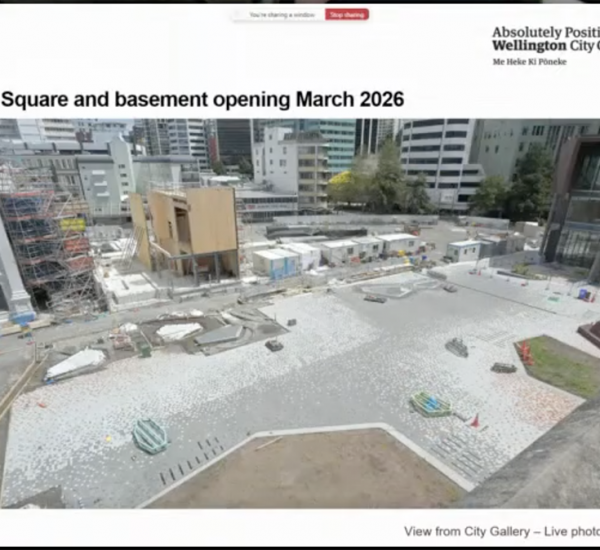So National has pledged to reform the RMA within its first 100 days of office, should it get elected. Some people are getting very excited about that. ACT seems to think this may mean less restrictions on suburban land for housing, and let ‘good’ projects start and finish earlier. National seems to think that key ‘infrastructure’ projects will get a green light with less soul-searching. Labour seems to think that the RMA is just fine as it is, and has no need to change.
If you were elected tomorrow, what would you change in the RMA in your first 100 days in office?




Change the timeframes for hearing appeals, i.e make it faster to schedule things in the environment court ( with more resources if needed)
You can find the problems by looking at the cases that stand out,
http://www.nzherald.co.nz/section/3/story.cfm?c_id=3&objectid=10493230
I mean if Progressive can stop Foodstuff opening a supermarket that it completed over 3 years ago with appeals and the like, surely this is an indication that something is rotten in the state of denmark.
The legislation is in bad need of an overhaul – the sooner the better. However, I suspect that the relaxation that Act and National want to see occur will be at the expense of quality. I’d rather see quality rewarded with processes that can identify it and accelerate processing times.
Anyway, 100 days seems too short for well-thought out policy, but you can be sure that The Centre for Resource Manangement Studies Trust (whose trustees happen to be Don Brash (Chairman), Noel Lane (Deputy Chairman), Sir Roger Douglas, Dick Quax, Alan Gibbs and Owen McShane), who have been advocating for cutting back the RMA for some time, still have the ear of National’s leadership… and have policy ready to go. if you want a good idea of what National might be proposing, then that is a good place to start (especially with the lack of actual policy detail being released by the Nat’s thus far…)
Clause 120 and clause 186 are pretty big crunch points for me.
Arguably the biggest problem with the RMA is that the same Act is used to crack a walnut as well as an elephant.
You want to install an external skylight in your roof in a heritage area? Use the RMA to apply for Consent.
You want to install 150 x 100m tall wind turbines in a conservation area? Use the RMA to apply for Consent.
It’s sort of ridiculous to expect the same Act to cope equally well on both counts. And it doesn’t. It’s far too tough on some small things, and far too easy on some others.
But its also ridiculous that an Act that should be administering over the use of Land, Sea, and Sky, should also be the same act that is expected to gently adjudicate between delicate nuances such as the appropriate manner to treat a window mullion on a 100 year old cottage.
my concern is that any changes to the RMA would weaken its protection of the environment, not strengthen it. There seems to be a general dislike of having to notify projects publicly by some sectors of society, who would rather things were approved behind closed doors. Shouldn’t it be made more open, so that everyone can see what you are proposing, rather than added protection given to rich developers just so they can screw the neighbours to their hearts content?
I do think it needs to be changed however I do NOT want to see National and especially never ever, ever ACT. All they would do would make it easy to build completely idiotic things like Auckland sprawling further and further and building power stations fueled by coal and gas. DO NOT WANT. I mainly want to see things like making it a lot easier to gain consent for renewable energy projects. It is absurd that it took ten years for project west wind to gain consent just because a few idiots who don’t seem to realise the reality of running out of fossil fuels and pollution. It should not take this amount of effort to build wind farms and hydro dams if we are going to reach the 90% renewable target.
I agree – but I guess, given the huge range of contrary opinions about development across the political spectrum, the poor RMA will never be something which will please enough people. But whatever changes are made, there needs to be enough time taken for people to know what might happen and for informed debate and discussion to feed into the decision-making. Democracy will always take more time than a dictatorship …
Jayseatea: if you go to the Centre for RMA studies that MD found, there is a link to a report called the Kotkin report, all about why Houston is the place to be.
http://www.houston.org/pdfs/kotkin/KotkinReportwithlinks.pdf
But there’s also this fabulous quote from Owen McShane from the NBR:
“Experience has shown us that forcing low income populations into high density “slabs” and reducing their mobility turns working class people and immigrants into warring underclass tribes.”
I like that – just what i’ve been saying for years.
Anyway – re the RMA – we have a real problem with developers in this country sneaking things through their local authority without having to talk to the population. What’s wrong with publicising your scheme? If its worth building, surely its worth telling people that they are free to go and have a look before the bulldozers move in?
When i was in England, they had a very simple scheme – you had to post a notice in the local paper, and also tie a notice around the nearest powerpole, with a small description of the project and where you could go to find out more. Notices ranged from “proposal to change colour of front door in a heritage area” (which i did think was going a bit too far), to “proposal for 12 storey office block”. Anything and everything, as far as i know. It wasn’t a big expense – and wasn’t debateable. So people didn’t complain, and just went and did it. It certainly hasn’t stopped things happening, or exciting new buildings being built.
So at the very least, i’d say my 2c on the RMA would be: make notification of all projects public. We are, after all, a democracy. Shouldn’t we behave like one?
guy-
That is a hilarious report. I love the fact that they’ve cited it as if it’s some kind of academic peer reviewed paper. It’s a marketing pamphlet that houston uses to try to lure business development. and this guy Kotkin – he touts himself as the anti-richard florida, but his CV lists a fellowship at an unheard of university, two fellowships at confirmed right wind think tanks, and a 3rd fellowship at a strategy group in Fargo, ND. (The only compelling strategy that goes on in Fargo, is how to get out of Fargo).
I’m going to go out on a limb, but I’m not sure I’d want the fate of millions put in his hands.
Anyway, page 12 in the brochure is a perfect example of what counts as urbanism in Houston. A 6 lane roadway that is only visually distinct from the sea of surrounding parking lots by wrapping a the trees and bushes in lights.
They do have a couple of little districts with what the rest of the world recognises as urbanism, in fact page 14 has a picture of one such neighborhood. Check out the urban vitality. If there was garbage in the streets I could actually believe it as a relic of neighbourhood that time has forgotten, but it’s so clean and devoid of any signs of human activity. Actually I’m not convinced that exists in Houston. I think it must be a diorama from one of their museums. Or maybe they’ve preserved the two blocks that remain of the historic urban fabric as some kind of twentieth century version of colonial williamsburg.
I think the double page spread on 42-43 is the most revealing though. That orange glow is not due to a camera filter but due to one of the many oil refineries that is currently on fire.
The funniest thing about houston as well is that they now have a light rail line.
Unfortunately the drivers of houston are so confused about this thing they are supposed to share the road with that they keep driving into it.
http://www.usatoday.com/news/nation/2004-03-07-houston-rail_x.htm
Don’t get me wrong. There are some good things about Houston. The Rice University campus, the De Menil Collection Campus, and the water wall at the Philip Johnson Transco Tower (now Williams) is the biggest and best urinal you’ll find in the US.
National have today released some indication of what their proposed revision of the RMA might be all about:
Gas-fired power stations to be permitted, and proposals for wind-farms and hydro-electric schemes will become easier to gain.
The full policy document (not the actual bill) is available here: http://national.org.nz/files/2008/RMA.pdf
I have pasted in the introduction below…
National supports the underlying principles of
the Resource Management Act (RMA), notably
sustainable management, integrated decision-making,
and an effects-based approach. But we believe the
Act needs to be reformed to reduce unnecessary
delays, uncertainties, and costs.
We want to improve environmental and economic
outcomes, and develop more efficient decisionmaking
processes.
Our focus will be on:
a. Simplifying and streamlining the processes of
the Act.
b. Providing greater central government direction
on its application.
c. Increasing the use of economic instruments
rather than regulations.
Our reform programme will involve amendments to
the RMA, greater use of national policy instruments
such as National Environmental Standards and
National Policy Statements, and institutional changes.
These reforms are a major undertaking. The first
phase of reforms, principally around improving the
processes of consents, will be advanced quickly. The
second phase – to improve decision-making around
infrastructure, water, and urban design – will be on a
slower track to allow greater sector engagement and
to ensure we get the detail right.
On the last page we find the suitably vague:
Urban Design
National will initiate a review around urban design.
There is legitimate concern among planners and
developers that the RMA is not working well for our
major cities. New approaches need to be supported,
and legislative reform may be necessary to make
them work effectively.
PS – having reviewed my earlier comments above, I am pleased to see that there are no representatives of the CRMS on the ‘independent’ advisory panel (even if they might have been involved in the drafting of the drafting of the bill – which actually I suspect not, given its timidity)…